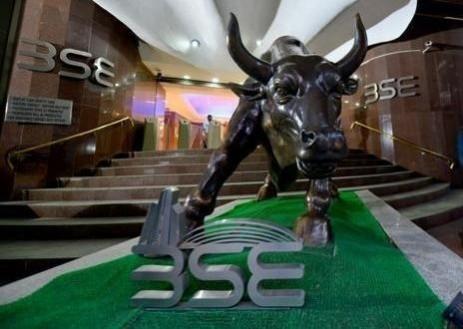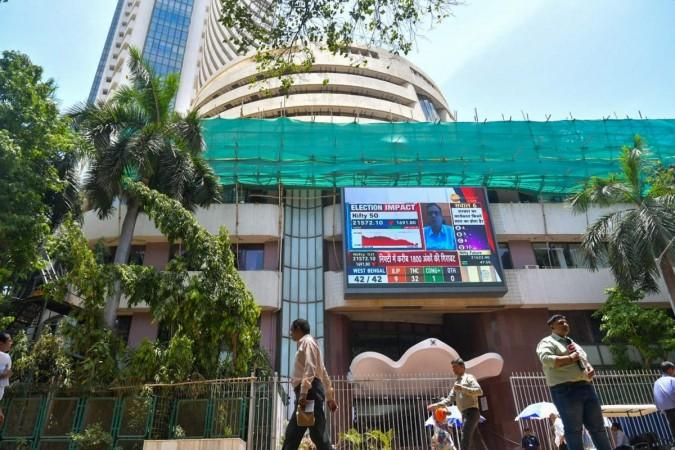
The Indian stock market ended slightly lower after witnessing volatile trading on Wednesday, as investors showed mixed reaction to the Reserve Bank of India's (RBI) decision to keep the repo rate unchanged at 5.5 per cent.
Sensex settled at 80,543.99, down 166.26 points or 0.21 per cent. The 30-share index opened in negative territory at 80,694.98 against last session's closing of 80,710.25 ahead of the RBI's decision on rate cut in the morning. The index hit an intra-day low of 80,448.82 and a high of 80,834.43 amid a volatile session.
The IT sector stock experienced heavy selling amid the tariff concerns. Nifty closed at 24,574.20, down 75.35 points or 0.31 per cent.
Despite renewed trade tensions, the domestic market remained resilient, holding firm near the key support level of 24,500, said analysts.
"Sector performance was mixed, with banks and financial services showing relative stability, while sectors such as pharmaceuticals, healthcare, IT, construction, media, and consumer goods faced noticeable weakness," said Ashika Institutional Equities in its note.
Bank Nifty experienced volatility as the RBI held its key policy rate steady, maintaining a neutral stance, which was widely expected. This unchanged monetary policy led to some uncertainty among participants.
Sun Pharma, Infosys, Tech Mahindra, Bajaj Finance, Eternal, HCL Tech, TCS, Ultratech, and Bajaj FinServ were among the top losers. Asian Paints, Adani Ports, Mahindra and Mahindra, BEL, SBI, and HDFC settled in green.

Among sectoral indices, Bank Nifty ended the session flat at 55,411.15, Nifty Auto fell 127 points or 0.53 per cent, Nifty FMCG closed 502 points or 0.90 per cent down, and Nifty IT ended the session 608 points or 1.74 per cent lower.
The broader market experienced heavy selling with Nifty Next 50 dragged 580 points or 0.87 per cent, Nifty 100 fell 101 points or 0.40 per cent, Nifty Midcap 100 dipped 457 points or 0.80 per cent, and Nifty Small Cap 100 closed 201 points or 1.13 per cent down.
"In anticipation of improvement in consumption, private investment, and continued government-led capex, the domestic economy appears well-positioned for a better second half, reinforcing investor confidence despite external uncertainties," said Vinod Nair, Head of Research, Geojit Investments Limited.
(With inputs from IANS)













